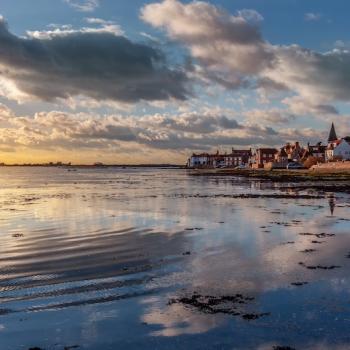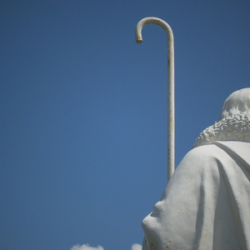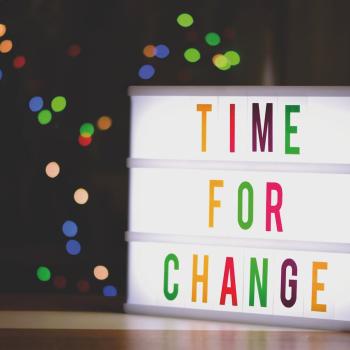Egypt is the Arab world's most populous nation, with an ancient and august history rivaling the Persian legacy of Iran. Control of Egypt is a great prize for ambitious ideologues. But the most important thing about Egypt in 2011 may just be that it is full of Christians and Muslims who want to protect and not pummel one another. Even if extremists prevail in the short run, we should not doubt the ultimate strength of good over evil. To invoke a regionally appropriate metaphor, little demonstrations of interfaith kindness are an uncorked genie. They cannot be put back in the bottle.
Last week, Timothy Dalrymple quoted passages from a Ha'aretz op-ed in which Avi Shavit suggests that "Western countries' poor handling of the Middle East proves they are no longer leaders." The passivity and disorder of the West before the Arab uprisings constitute evidence, in Shavit's view, of Western decline. This may well be so, but for Western Christians, it is worth asking what the definition of the "West" means, and what exactly is in decline. Surveying the situation in Egypt, I am not at all convinced that the modern Western passion for secularism and government programs would make a transformative difference. But I have no doubt that the gospel of Jesus Christ, disseminated in a free society, would make a profound difference indeed.
Egypt has its own Christians to carry the gospel. The "West" is not sidelined, I think, but consigned to a supporting role, a role it should be eager to play. Western Christians can pray for the outcome in Egypt, but in significant ways, the outcome will not hinge on the West's trademark political ideas. It may well cause us to rethink some of our assumptions about faith, civil life, and God's hand in our affairs. I don't believe its message for the West will be one of humiliation—but that may depend on whether we let it encourage in us a proper humility in the face of events far larger than ourselves.





